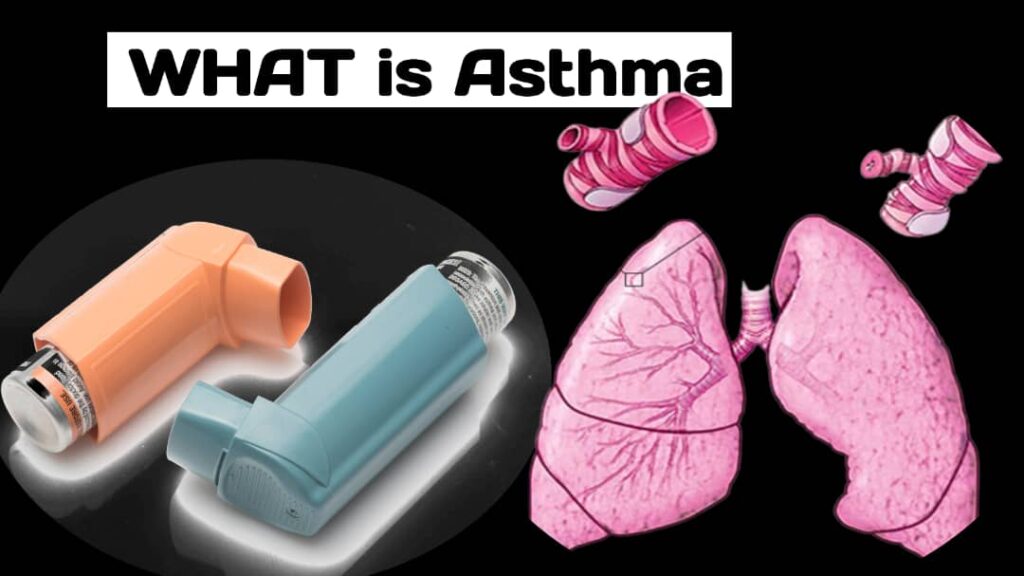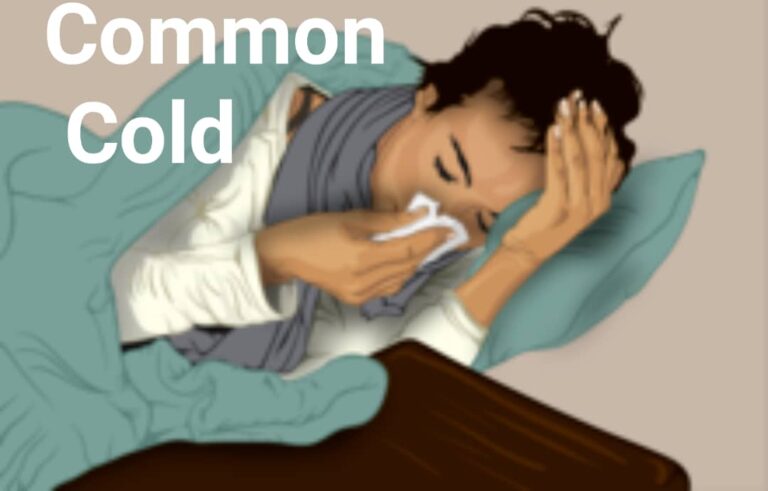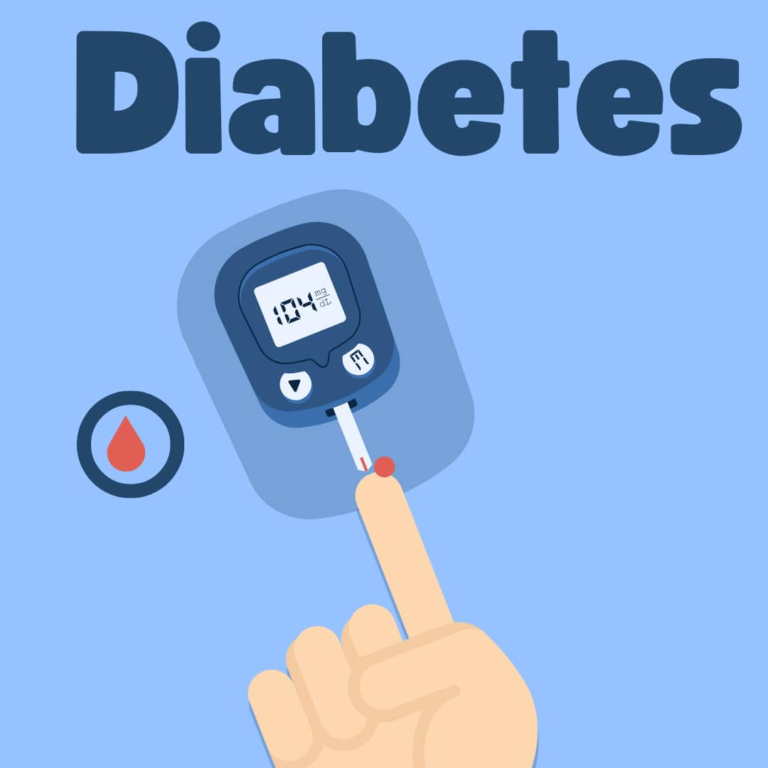What is asthma

Asthma is a chronic respiratory condition characterized by inflammation and narrowing of the airways, which leads to difficulty in breathing. It is a common condition that affects the lungs and can cause recurring episodes of wheezing, coughing, shortness of breath, and chest tightness.
Here are some key points about asthma:
Airway Inflammation: In individuals with asthma, the airways become inflamed and more sensitive to various triggers. This inflammation can cause the airway walls to swell, produce excess mucus, and constrict or narrow the air passages.
Symptoms: Asthma symptoms can vary in severity and frequency. Common symptoms include wheezing (a whistling sound during breathing), coughing (especially at night or early morning), shortness of breath, and chest tightness or discomfort. Symptoms can range from mild and intermittent to severe and persistent.
Triggers: Asthma symptoms can be triggered by a variety of factors, which can differ among individuals. Common triggers include allergens (such as dust mites, pollen, pet dander), irritants (such as smoke, strong odors, air pollution), respiratory infections (such as colds or flu), exercise, cold air, stress, and certain medications or substances (such as aspirin or sulfites).
Types of Asthma: Asthma can be classified into different types based on various factors, including the underlying cause or trigger. Allergic asthma is triggered by allergens, while non-allergic asthma can be triggered by factors other than allergens. Occupational asthma is caused by exposure to specific substances or chemicals in the workplace. Exercise-induced asthma occurs during or after physical activity.
Diagnosis: Asthma is typically diagnosed based on a combination of medical history, physical examination, and lung function tests. These tests may include spirometry, which measures how well the lungs function, and a bronchodilator test, which assesses the response to medication that helps to open up the airways.
Treatment: Asthma is a chronic condition, but with proper management, most individuals can lead active and fulfilling lives. Treatment usually involves a combination of medications and lifestyle modifications. Medications may include quick-relief or rescue medications (such as short-acting bronchodilators) to provide immediate relief during asthma attacks, and long-term control medications (such as inhaled corticosteroids) to reduce airway inflammation and prevent symptoms.
Asthma Action Plan: It is important for individuals with asthma to work closely with their healthcare providers to develop an asthma action plan. This plan outlines daily management strategies, identifies triggers, and provides guidance on medication use and when to seek medical assistance in case of worsening symptoms.
Monitoring and Prevention: Regular monitoring of symptoms and lung function, avoidance of triggers whenever possible, maintaining a healthy lifestyle, and getting vaccinated against respiratory infections (such as influenza and pneumonia) can help prevent asthma exacerbations and complications.
It’s important for individuals with asthma to follow their healthcare provider’s guidance, take prescribed medications as directed, and seek medical attention if symptoms worsen or if they have difficulty managing their condition.
Here are some additional details about asthma:
Asthma Severity: Asthma can range from mild to severe, depending on the frequency and intensity of symptoms. The severity of asthma is determined by factors such as the frequency of symptoms, the need for medication, and lung function. Understanding the severity helps guide treatment decisions and management strategies.
Asthma Triggers: Asthma symptoms can be triggered by a wide range of factors. In addition to allergens and irritants, other common triggers include viral respiratory infections (such as the common cold), exercise-induced bronchoconstriction, weather changes (such as cold air or high humidity), emotional factors (such as stress or laughter), and certain medications (such as beta-blockers or nonsteroidal anti-inflammatory drugs).
Asthma Exacerbations: Asthma exacerbations, also known as asthma attacks, are episodes when asthma symptoms worsen significantly. They can be triggered by exposure to allergens or irritants, respiratory infections, non-adherence to medication, changes in weather, or other factors. Prompt recognition and appropriate management of exacerbations are crucial to prevent severe complications.
Asthma in Children: Asthma is a common condition in children, and symptoms can vary depending on the child’s age. Infants and young children may experience recurrent coughing, wheezing, and difficulty breathing, which can be triggered by viral infections. It’s important for parents and caregivers to work closely with healthcare providers to manage asthma in children effectively.
Asthma and Allergies: There is a close relationship between asthma and allergies. Allergic asthma is the most common type of asthma, and allergens such as pollen, dust mites, mold spores, and pet dander can trigger symptoms. Managing allergies through avoidance measures, medications, and allergy immunotherapy (allergy shots) can help control asthma symptoms in individuals with allergic asthma.
Asthma in Pregnancy: Women with asthma can have safe pregnancies with appropriate management. It’s important for pregnant women with asthma to work closely with their healthcare providers to ensure optimal asthma control. Proper management helps maintain good oxygenation for both the mother and the developing baby.
Asthma Education and Support: Education and support are crucial for individuals with asthma to effectively manage their condition. Asthma education programs provide information on asthma triggers, medication use, proper inhaler techniques, and self-management strategies. Support groups and online communities can also offer a platform for individuals with asthma to connect, share experiences, and gain support.
Emergency Preparedness: It’s important for individuals with asthma to be prepared for emergencies. This includes having a written asthma action plan, carrying rescue medications (such as inhalers) at all times, knowing when and how to seek emergency medical care, and having contact information for healthcare providers readily available.
Remember, asthma is a chronic condition that requires ongoing management. By working closely with healthcare providers, following an individualized treatment plan, and making appropriate lifestyle modifications, most individuals with asthma can achieve good control over their symptoms and lead active, healthy lives






